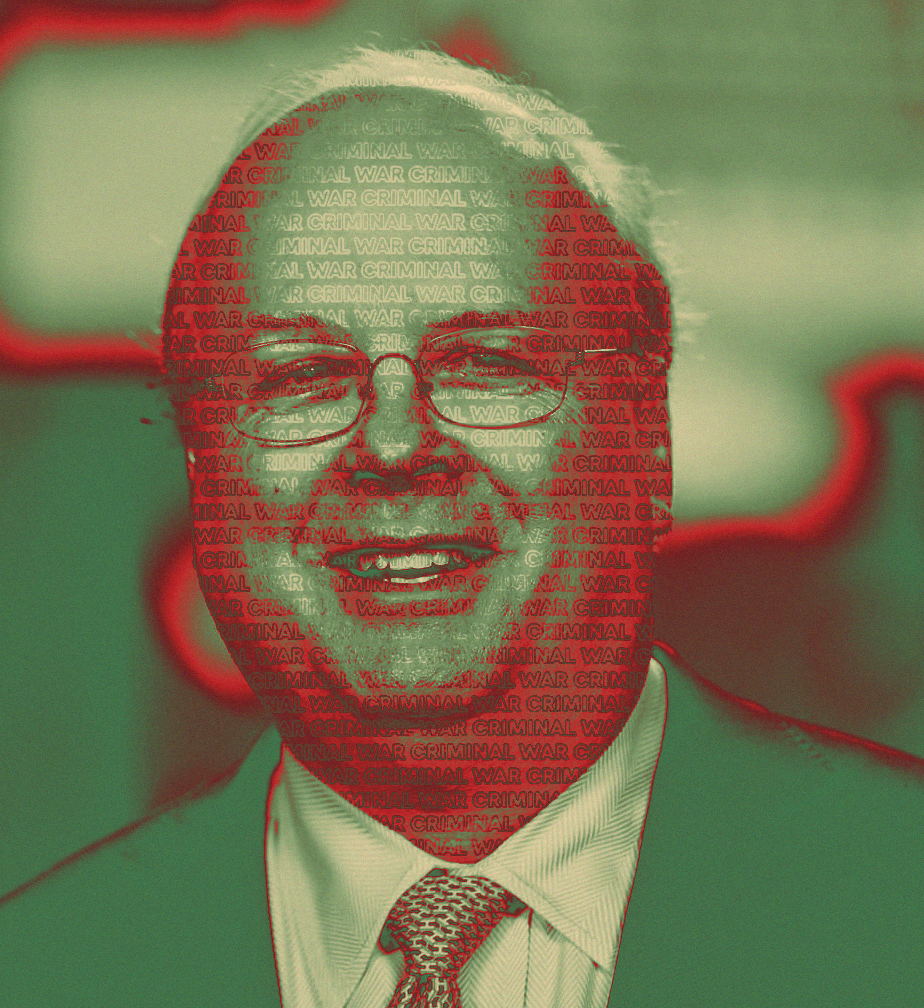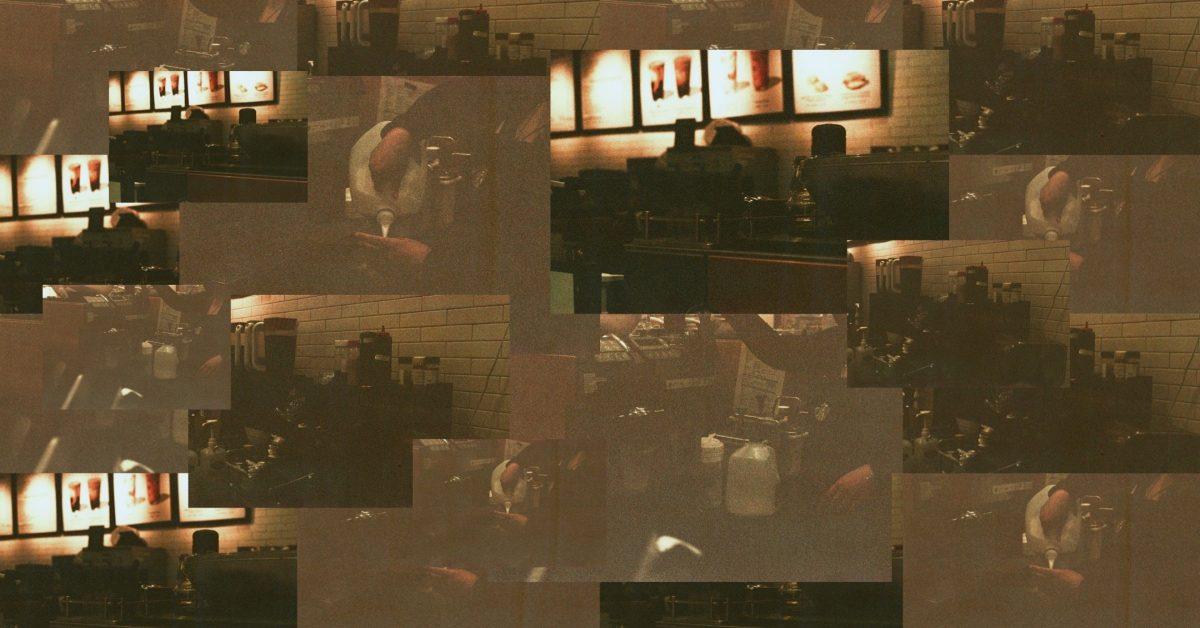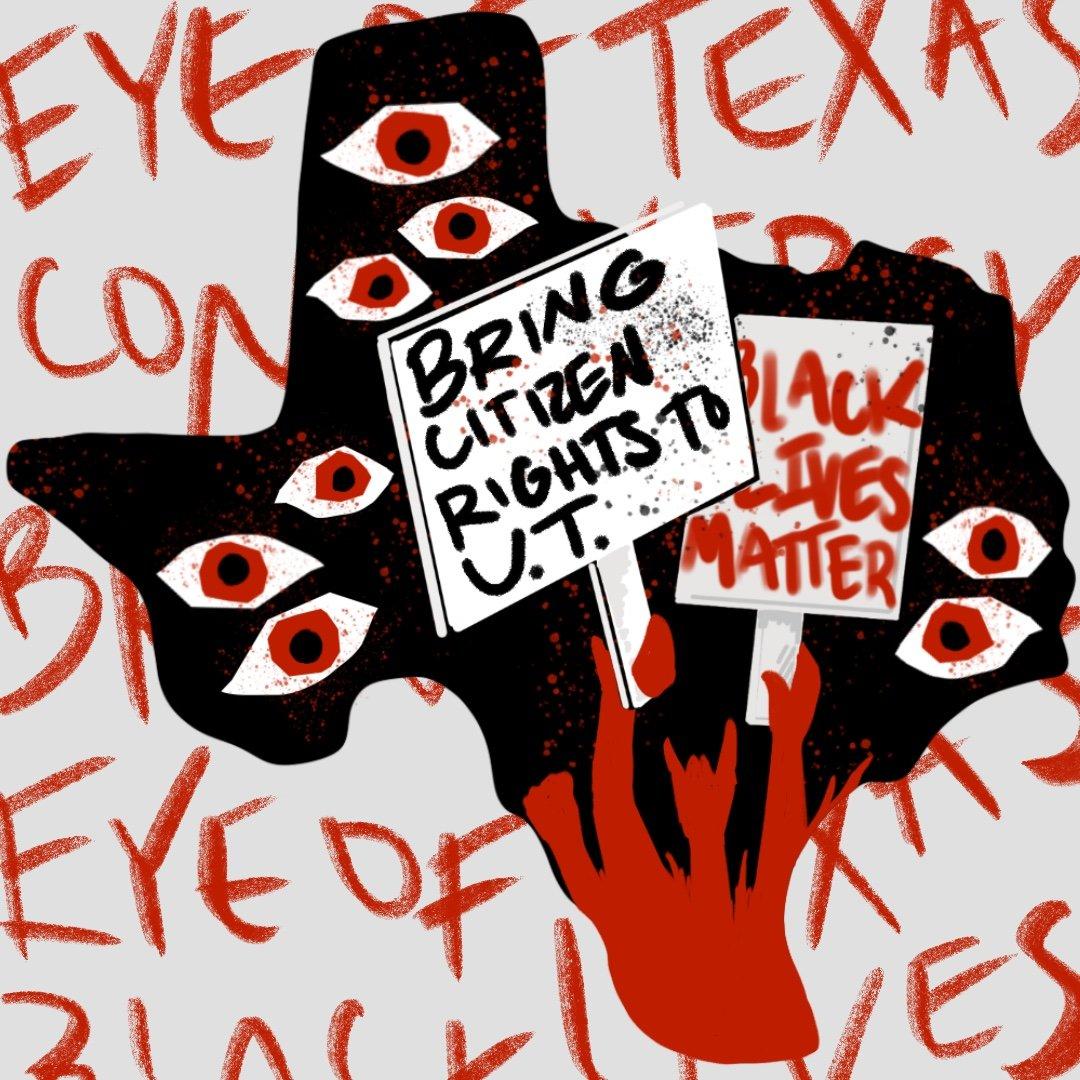Story by Safa Michigan // she/her // IG: IG: safamichigan Twitter: safathinks
Graphic by Fernando Avelar // he/him // IG: @ferdx
This semester, UT’s Plan II Honors and government departments have welcomed Karl Rove, former Senior Advisor (2000-2007) and Deputy Chief of Staff (2004-2007) to George W. Bush, as a guest professor in a cross-listed honors seminar. The class, which required applications for enrollment, is called “The Modern American Political Campaign.”
This is one of Rove’s many connections to the university. He was briefly a student at UT Austin before returning in the 1990s to teach undergraduates within the journalism and government departments and graduate students at the LBJ School of Public Affairs. Currently, he serves on the Chancellor Council’s Executive Committee, a powerful leadership group which meets consistently with the “Chancellor, UT system executive officers, UT presidents and faculty regarding special initiatives and issues of importance to higher education in Texas.”
The problem is that Karl Rove is a war criminal.
As Bush’s Senior Advisor, Rove held a crucial role in the peddling of the Iraq War to the American public. When the Bush administration first floated the idea of invading Iraq in 2002, polls revealed that most Americans had serious doubts. The public wondered why we would launch a preemptive war to depose Saddam Hussein, who had no real connection to the 9/11 attacks. Rove was instructed to raise those polling numbers — or, in other words, to manufacture consent for the invasion of Iraq. In order to link Iraq to rampant post-9/11 fears about terrorism, Rove and a team called the White House Iraq Group capitalized on unproven and thoroughly disputed reports that Iraq was reassembling its nuclear program. They were architects of war building upon a foundation of deception. “Facing clear evidence of peril, we cannot wait for the final proof — the smoking gun — that could come in the form of a mushroom cloud,” lied Bush in an infamous speech.
Rove then aided in developing a strategy that allowed the Bush administration to win a war resolution from a torn Congress. He wielded his political savvy as a tool to influence congressional candidates to focus on the invasion as a platform issue in the coming election cycle, advising that warmongering would cement Americans’ trust in the Republican Party to engage in defense spending. He even manipulated Democrats by claiming that voting against the resolution would result in a barrage of criticism for a soft stance on terrorism during the election cycle.
The invasion of Iraq and the warfare that followed colored the region with blood, leading to the displacement of 9.2 million Iraqis. The total death count is highly disputed — some estimates count 200,000 civilians dead since 2003; this toll increases to 300,000 upon consideration of non-civilian deaths. Other estimates reach over 1 million deaths.
Some say that calling Rover a war criminal is inaccurate since the Fourth Geneva Convention of 1949 states that a war criminal must be in a position able to authorize any use of military force. While this is technically true, it’s important to fully recognize the amount of power Rove actually held. Bush’s administration was one of the least centralized in history, and Rove has been described as “the brains” of Bush’s presidency. Columnist Michael Barone described Rove in the U.S. News & World Report: “no Presidential appointee has ever had such a strong influence on politics and policy, and none is likely to do so again anytime soon.” Another definition categorizes war criminals as “leaders, organisers, instigators and accomplices participating in the formulation or execution of a common plan or conspiracy to commit any of the crimes above are criminally responsible for everything done by anyone in carrying out such a plan.” Rove clearly fits the bill here.
Venerating Rove through an appointment as an honors guest lecturer is a grave insult to the millions of people who were either displaced or murdered due to his manipulations. The appointment contributes to his rehabilitation. This is a man who unflinchigly continues to defend his past actions and has gone on to publicly celebrate the use of enhanced interrogation techniques — a santizied synonym for “torture.” By allowing him to teach and mentor a cohort of impressionable students, many of whom harbor political ambitions, the university essentially takes a clear position on Rove’s past choices — they’re admirable, indicative of a wisdom worthy of imparting unto a new generation of policymakers.
It’s unsurprising that Karl Rove feels welcome and honored at this institution. The university boasts a long history of catering to unethical and hegemonic interests, whether it be through the celebration of racist traditions, funding an increased police presence, fossil fuel and oil investments, strengthening the military industrial complex, mishandling tuition funds and sexual misconduct, or platforming the Central Intelligence Agency.
I implore the students who applied to take this class to grapple with your willingness to ignore, or in some likely cases, your admiration of Rove’s past. Are you truly so desensitized to the destruction he designed, to mass death? What do you hope to learn from him? What does this say about you?
To those of us ethically opposed to his teaching appointment or his seat on the Chancellor Council’s Executive Committee, we shouldn’t passively accept this. Let’s organize. Let’s show up to protest. Let’s write a collective open letter. This is our school, too, and we should make ourselves heard.












































